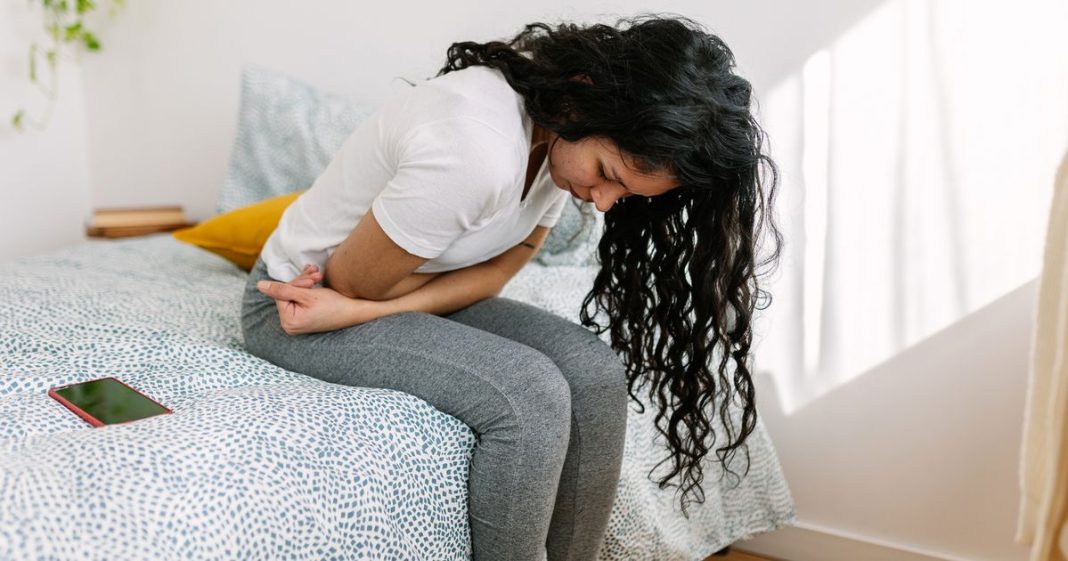It’s easy to overlook stomach pain and toilet troubles as something related to diet. But one doctor warns these very symptoms could be indicators of an often-missed condition in women, which poses a significant diagnostic challenge.
Dr Gareth Nye, a Biomedical Science lecturer at the University of Salford, told the Mirror that roughly one in every 10 women between 15 and 49 has endometriosis. This condition arises when tissue like that which lines the womb starts developing in other places, such as the ovaries and fallopian tubes.
Symptoms typically include lower abdominal or back pain that worsens during menstruation, pain during intercourse and diarrhoea, on top of painful cramps, excessive menstrual bleeding and difficulty conceiving. While this can drastically impact quality of life, diagnosis times have risen to eight years and 10 months in England since 2020, according to recent figures.
Dr Nye, therefore, encourages women to remain vocal about their unique symptoms in order to receive appropriate treatment. “Endometriosis develops when cells that resemble the part of the womb which sheds during menstruation (endometrium) is found in locations outside of the womb,” Dr Nye explained in an exclusive interview.
“This can occur in a number of places, but in 60% of cases it’s found in the ovaries, leading to fertility issues. Other uncommon sites include the bowel, kidneys and lungs, leading to irregular symptoms and a very difficult diagnosis.
“This tissue is found by the immune system, which thinks it’s harmful to the body and acts to remove it, leading to inflammation and pain. To make matters worse, this tissue is still acting like the endometrial lining, and so, as the monthly hormonal cycles occur, you can see growth of the tissues and even bleeding, which therefore makes symptoms inconsistent and variable from month to month, even week to week.”
The World Health Organisation estimates that around 190 million people in the world are affected by endometriosis. Still, Dr Nye suspects the real number is far higher due to underdiagnosis and a lack of awareness.
As the world grapples with the threats of Covid-19, mpox and more, the Mirror has launched its very own Health & Wellbeing WhatsApp community where you’ll get health warnings and news straight to your phone.
We’ll send you the latest breaking updates and exclusives all directly to your phone. Users must download or already have WhatsApp on their phones to join in.
All you have to do to join is click on this link, select ‘Join Chat’ and you’re in! We may also send you stories from other titles across the Reach group.
We will also treat our community members to special offers, promotions, and adverts from us and our partners. If you don’t like our community, you can check out any time you like. To leave our community click on the name at the top of your screen and choose Exit group. If you’re curious, you can read our Privacy Notice.
Discussions around menstrual issues remain largely taboo, too. A focus group study from Endometriosis UK found that 47% of the female population (aged 16-54) ‘would be concerned to tell their employer they needed to take time off sick due to endometriosis’.
It’s also thought that many women dismiss their symptoms as unworthy of further investigation, having been told that their discomfort is merely period pain and nothing to be overly concerned about.
Emma Cox, CEO of Endometriosis UK previously commented: “Myths such as ‘chronic period pain is normal’ or ‘you must have a low pain threshold’ manifesting in society, workplaces, schools, and even healthcare settings contribute to those experiencing symptoms being put off from seeking medical advice and contribute to diagnosis taking on average a shocking eight years.
“The impact of delayed diagnosis on people’s physical and mental health can’t be overstated. If undiagnosed, the disease may progress, and negatively impact people’s careers, education, relationships and all aspects of their life.”
Amidst such trends, Dr Nye has urged that significant ‘changes in medical opinion’ must occur for women to receive the correct diagnosis and treatments for endometriosis.
The disease is currently incurable, but painkillers and surgeries, such as hysterectomies, are frequently recommended to help manage symptoms. “There is a big push to educate healthcare workers with regards to women’s reproductive issues, which will hopefully make diagnosis more accessible and streamlined,” Dr Nye said.
“Women need to remain vocal about their journey to diagnosis and their unique symptoms to ensure the NHS gains a full insight into the issues at hand.
“Getting in contact with charities such as Endometriosis UK can provide backing and support, but ultimately, wholescale changes in medical opinion on women’s health issues need to change before we can begin to help, in addition to more funding and research into the conditions.”
At Reach and across our entities we and our partners use information collected through cookies and other identifiers from your device to improve experience on our site, analyse how it is used and to show personalised advertising. You can opt out of the sale or sharing of your data, at any time clicking the “Do Not Sell or Share my Data” button at the bottom of the webpage. Please note that your preferences are browser specific. Use of our website and any of our services represents your acceptance of the use of cookies and consent to the practices described in our Privacy Notice and Cookie Notice.

